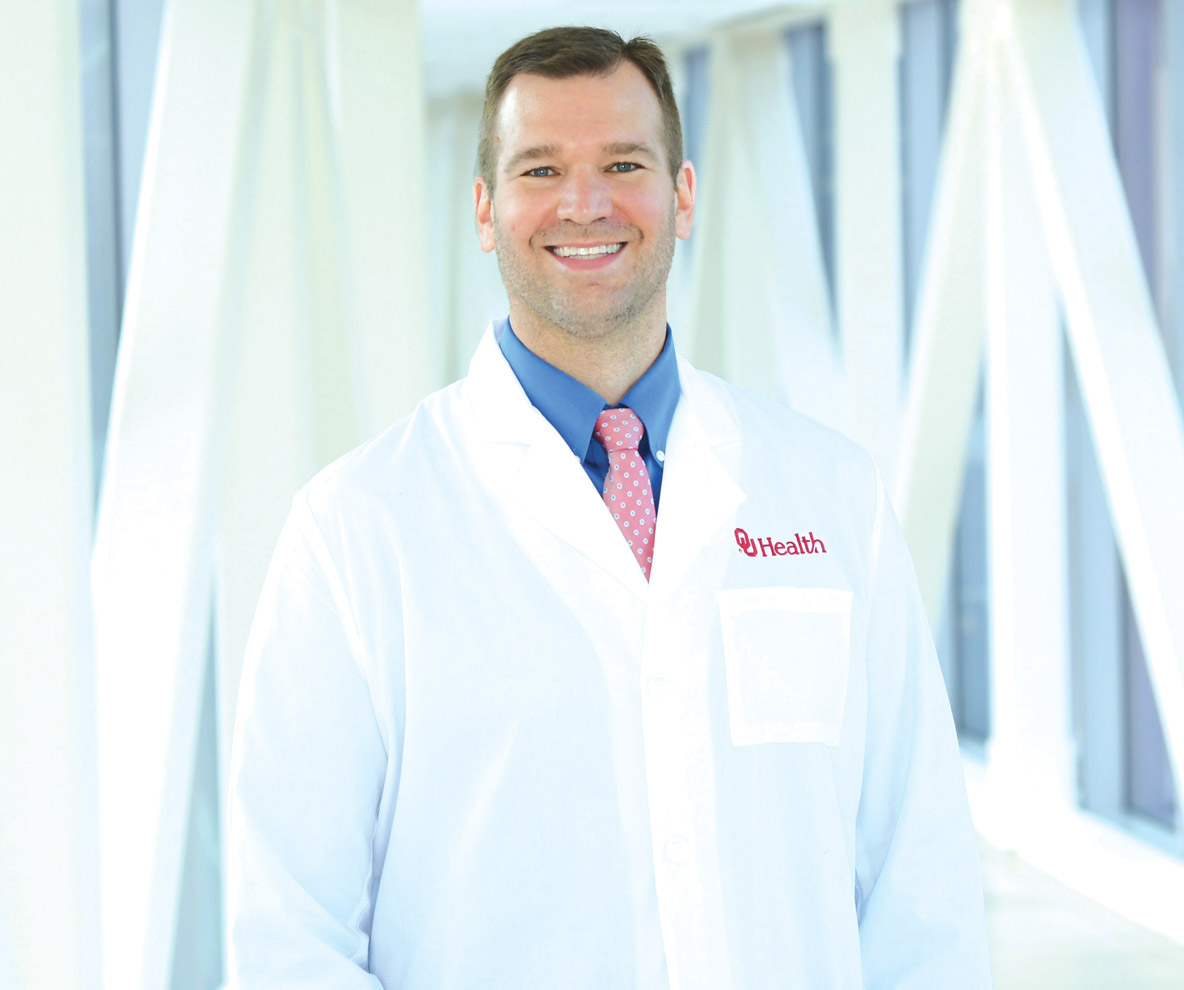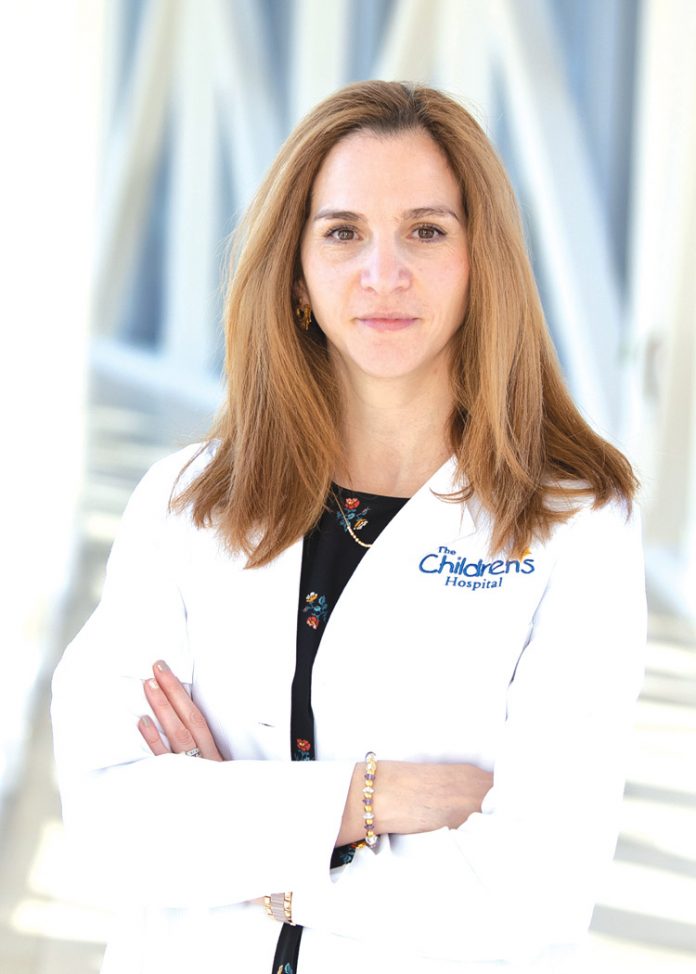
The Neonatal Intensive Care Unit (NICU) at Oklahoma Children’s Hospital OU Health has joined the Necrotizing Enterocolitis Society Biorepository, which allows member organizations across the nation to collaborate on research into a devastating intestinal disease that affects premature babies.
By joining the group, the NICU at Oklahoma Children’s Hospital will partner with six other approved hospitals and academic medical centers around the nation in gathering samples from preterm infants and conducting research primarily aimed at preventing necrotizing enterocolitis (NEC). Because Oklahoma Children’s Hospital provides the state’s highest level of care for newborns, its NICU treats most babies from across the state who have been diagnosed with NEC, and researchers on campus are studying the condition. However, there is great potential in a multicenter collaboration that can conduct research using a large repository of human samples.
“We’re honored to be part of the group and we bring a lot of interest and passion for helping babies and preventing NEC,” said OU Health neonatologist Hala Chaaban, M.D., who will lead the effort. “We hope that we can make a difference and eventually never have to see this disease again.”
NEC is the most common intestinal emergency and a heart-wrenching disease that primarily affects infants born prematurely. In about 30% of cases, the infant dies, often hours or days after diagnosis. For preterm babies who are born weighing 2 pounds or less, the risk of death with NEC is as high as 50%, Chaaban said. The condition occurs not when premature babies are at their most fragile, but a week or two later after they have stabilized. It occurs suddenly and progresses rapidly when the baby’s small intestines have an excessive reaction to naturally changing bacteria. Because of the inflammation that occurs, large sections of the baby’s intestines become necrotic and die, and very little can be done to stop the cascade of events.
The babies who survive severe NEC almost always do so because a surgeon has removed their intestines. However, at least one-fourth of survivors will face problems with growth, nutrition, walking and cognitive development, as well as an increased risk of cerebral palsy. Although clinicians and researchers know some of the risk factors for NEC, there is still no way to predict when or how the condition occurs.
As part of the NEC Society Biorepository, the NICU at Oklahoma Children’s Hospital will collect a variety of samples, including urine, blood and stools, from preterm infants shortly after birth, with their parents’ consent. The collection is non-invasive and uses samples that will be analyzed for other reasons and that would otherwise be discarded after analysis. If any of those babies develop NEC, samples will be collected from the intestines (if removed) in collaboration with Oklahoma Children’s Hospital pediatric surgeon and NEC expert Catherine Hunter, M.D. All samples are de-identified and can be used for research at individual institutions in the NEC Biorepository, as well as for multicenter projects with numerous collaborating researchers.
“Another reason that it’s important to have a multicenter, standardized approach is that we are trying to understand not only the disease process, but what happens before the disease is detected clinically,” said Jeffrey Eckert, Ph.D., who oversees biorepository efforts for the NICU at Oklahoma Children’s Hospital. “We will conduct research that aims to find biomarkers or something else that can help predict when a child is at risk for NEC so that we can intervene early. It takes an incredible amount of samples to do that, and each individual institution doesn’t necessarily have enough.”
In addition to premature babies being at risk for NEC, the use of formula instead of human breast milk is another risk factor, Chaaban said. As part of the biorepository process, the NICU will be collecting breast milk for analysis. Oklahoma Children’s Hospital, through the Oklahoma Mothers Milk Bank, provides breast milk exclusively for babies in the NICU who weigh less than 3 pounds. However, NEC still occurs in babies who have received breast milk, so researchers will be looking for possible differences in the milk.
“There may be some protective factors in milk that are produced by some mothers but not others,” Chaaban said. “We’ll be looking at the bioactive factors in human milk and the variability between mothers, as well as the variability over time. That could answer some questions as to why some babies develop NEC when receiving breast milk. At some point, we may be able to test the breast milk the baby is receiving and, if it’s deficient in something, we might be able to add it to prevent NEC. That’s far in the future, but it is what we are envisioning the future will be – a personalized approach.”
The NEC Biorepository is directed by Misty Good, M.D., a neonatologist at Washington University, with support from Troy Markel, M.D., a pediatric surgeon at Indiana University, and Jennifer Canvasser, founder and director of the NEC Society.
Several other NICU specialists at Oklahoma Children’s Hospital will take part in the biorepository efforts, including neonatologists Birju Shah, M.D., Marjorie Makoni, M.D., Erynn Bergner, M.D., Abhrajit Ganguly, M.D., and others. Funding comes from the Section of Neonatal-Perinatal Medicine in the Department of Pediatrics at the OU College of Medicine, led by Section Chief Trent Tipple, M.D. “I am delighted to support Oklahoma Children’s Hospital’s valuable participation in the NEC Biorepository,” said Tipple, who holds the Reba McEntire Endowed Chair in Neonatology. “Oklahoma Children’s Hospital will play a critical role in improving the outcomes of babies with NEC in the Sooner state and around the world.”













